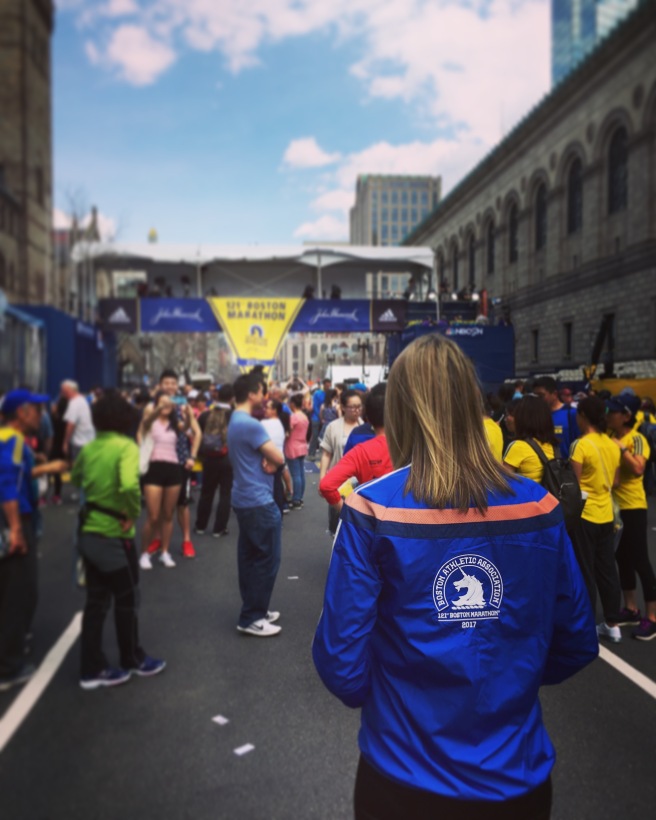
When you run the marathon, you run against the distance — not against the other runners, and not against the time.
Haile Gebrselassie
In my lifetime, there has never been a marathon to equal what was witnessed yesterday on the streets of Boston.
By this, I do not mean that Boston 2018 was the fastest, or the flashiest, or the most competitively stacked. This isn’t about some record-shattering time, some nail-biter duel between lifelong rivals. By any standard, yesterday was a slow day — a brutal day that saw runners contend with freezing rain and a merciless 40km/hour headwind in one of the coldest Boston Marathons on record. It was the kind of weather most marathoners pray they’ll never have to face come race day.
The punishing conditions wiped out more than half of the elite field, including Olympic bronze medallist Deena Kastor, two-time Boston Marathon champion Lelisa Desisa, and American supervillain favourite Galen Rupp. In a race so often and so thoroughly dominated by East African distance runners, only Geoffrey Kiriu and Edna Kiplagat survived to crack the top ten.
Mile by mile, step by step, the elite field dropped like flies.
Into that wet and windy vacuum ran the unlikeliest of athletes: an unsponsored Japanese marathoner with a cult following and a government day-job, and a Michigan-based perennial runner-up who describes herself (that is, until yesterday) as “still searching for that big W”. If a Desiree Linden/Yuki Kawauchi championship wasn’t unlikely enough, consider the relative unknowns who rounded out the women’s podium: American Sarah Sellers, an unsponsored 26-year-old nurse anesthetist from Arizona who, unlike the invited elite field, qualified and paid entry fees in order to run, and Canada’s own Krista DuChene.
The 41-year-old DuChene — a registered dietitian, mother of three, and certified badass — overcame a broken femur (as well as Athletics Canada’s controversially exacting standards) to represent Canada in the 2016 Rio Olympics. But while DuChene has become a household name within the Canadian running community, on the world stage, she’s just another face in the crowd — and the longest of long-shots for a Boston Marathon podium finish.
(A post-race interview with LetsRun.com, in which DuChene describes her utter disbelief upon learning she’d finished third, adorably begins with the question “Can you pronounce your last name for me, please?”)
It’s nearly impossible to overstate just how far from ideal Monday’s conditions were. It was a hellish, brutal, messy, and unpredictable race — it was, in the words of Reid Coolsaet, “absolute carnage.”
And it was captivating.
In the age of professionalization, the captivating marathon is an endangered species. As governing bodies and sponsors look with increasingly singular focus to the cold, quantifiable business of records and results, the narrative aspect of the marathon has taken a back seat. The saddest and most singular embodiment of this trend has to be Nike’s “Breaking 2” project — a clinical, controlled 42.2K time trial aimed at breaking the two-hour barrier under the most ridiculous of controlled conditions.
Like most marathoners, I have on occasion found myself defending my sport against the charge that distance running is “boring”. Having followed the sport closely for years, I confidently assert that running is not boring — it’s subtle.
Except time trials. Those are boring.
By now, my whole thing with Nike’s “Breaking 2” stunt is pretty much a matter of public record. The time trial was promoted as a must-watch event, complete with the sort of media hoopla befitting a World Marathon Major. While the project ultimately came up short of breaking the two-hour barrier, it was successful in demonstrating the vulnerability of Dennis Kimetto’s world record under painstakingly engineered (and in no way race-legal) conditions.
It was also overwhelmingly, aggressively boring, in the way that only something so artificial and sanitized can be.
Professionalization has benefited the sport in myriad and significant ways — from improved apparel, gear, and fuelling options to impressive national and world record progressions. But it’s worth remembering that the core of the marathon has nothing much at all to do with world records, or big-name sponsorships, or ugly shoes that give a 77% energy return on the forefoot.
Of this, yesterday’s race was a powerful reminder.
There’s a reason Jon Dunham’s 2007 documentary “Spirit of the Marathon” is so perennially moving and fascinating, 11 years and multiple viewings later; at all levels of competition, the marathon is a dramatic, unpredictable, heart-rending experience. It’s also deeply personal. The stories that make a marathon captivating aren’t told by splits or rankings — they must be seen, be experienced, to be understood.
In my lifetime, there has never been a marathon to equal what was witnessed yesterday on the streets of Boston. The time trial hype men would do well to take notice.
Chase big dreams.

I enjoyed reading this Amy. So cool to read about the many “unknowns” who made the headlines and top podium finishes. Says a lot for the character of these runners who chase big dreams. Thanks for sharing! 🙂
LikeLike